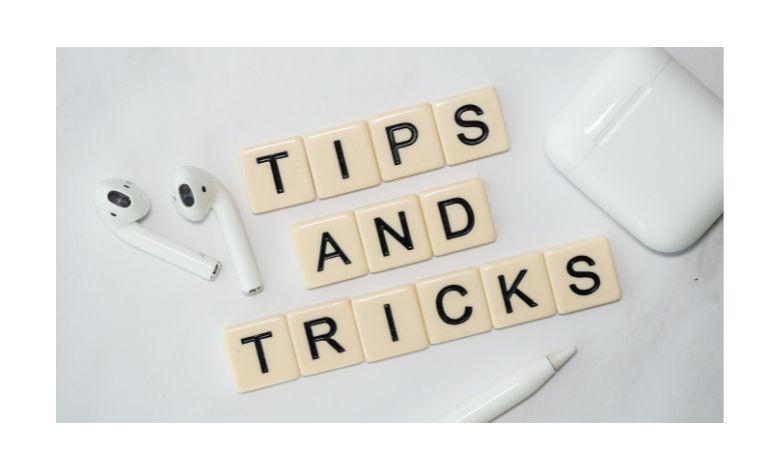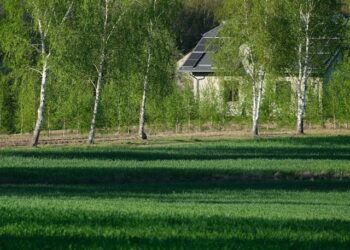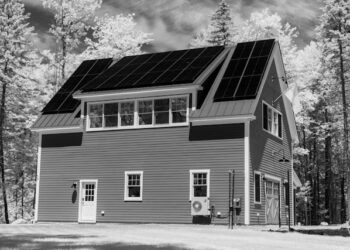Learn key tips in Sustainable Camping Tips: How to Leave No Trace, camp responsibly, protect nature, and leave wild places untouched.
That moment made me feel something. I started looking into eco-friendly camping and came across the idea of “Leave No Trace.” I’ve changed the way I camp since then. It has been a process of learning that has been both wonderful and humbling. Welcome if you want to learn how to enjoy nature without hurting it. Let’s speak about what it actually means to camp without leaving a mark.
What You'll Discover:
What does it mean to camp in a way that doesn’t hurt the environment?
It is a good start to not use plastic utensils or play loud music, but sustainable camping involves more than that. It’s a way of looking at things. It’s about choosing decisions that are good for the environment and good for us. At its core, it’s about living in peace with nature instead of making things worse.
To put it simply:
If every camper did what I’m doing right now, would this place look the same in five years?
If the answer is “no,” then there is still space for improvement.
And believe me, I’ve had a lot of those times too.
Why “Leave No Trace” Is More Important Than Ever
The Leave No Trace rules aren’t just words that people use to be cool. Years of research, conservation work, and harsh lessons learned from the degradation of our open spaces have led to these ideas. The risk of environmental damage goes up a lot when more people visit national parks and wilderness regions than ever before. Trash builds up, animals grow stressed, and ecosystems that are already weak fall apart.
Every step you take in the wild makes a wave, so think of it that way. Some ripples go away quickly, but others stay, like pollution in a stream, a crushed patch of wildflowers, or a piece of trash that a raccoon finds interesting (but not edible). Camping in a way that doesn’t hurt the environment helps to calm those waves.
The 7 Principles of Leave No Trace: What I Learned the Hard Way
These aren’t just regulations; they’re guidelines to help us make better decisions when we’re outside. I’ll tell you the theory, some suggestions, and yes, a story from my own life when I learned the hard way (or the embarrassing way). These also double as essential sustainable camping tips for anyone just starting out or looking to improve.
1. Get ready and plan ahead
If you’re like me, you used to think that “winging it” was the finest way to tell an adventure story. Spoiler alert: it usually simply makes things worse.
On one trip to the desert, I forgot to check the fire laws. We brought firewood, but we couldn’t use it, so we wasted it. It was considerably harsher because we weren’t ready for how cold the nights would become without a fire. A move that a total beginner would make.
Advice:
- Know the restrictions for the area, like those for permits, campfires, bear safety, and other things.
- Check the weather, the quality of the path, and if there are any nearby water sources.
- Bring stuff you can use again, including containers, cutlery, and water filters.
Why it matters: Being ready keeps you from making stupid choices that affect the environment or ruin your trip.
2. Camp and travel on surfaces that last
It may look nice to meander across meadows on Instagram, but it affects the ecology, especially the fragile ecosystems in the highlands. I once put up a tent by a lake on a soft bed of moss because it was “so peaceful.” A month later, I went back and discovered a big, dead area where the moss hadn’t come back. I felt awful.
Advice:
- Stay on marked paths and in campgrounds.
- While camping, stay at least 200 feet away from lakes and streams.
- When you’re in the back country, stay in areas with rocks, gravel, or dry grass.
Why it matters: It could take years for plants to grow back, and sometimes they don’t come back at all.
3. Throw away rubbish in the proper way
People miss this one the most, even though it’s the most obvious. I have to admit that I once buried a banana peel in the woods because I felt it was “natural.” It was still there two weeks later, half-rotten and full of bugs.
Suggestions:
- You should take everything back with you, even fruit peels and other rubbish that can break down.
- Use the toilets that are set up for this, or dig a hole for a cat that is 6 to 8 inches deep and 200 feet away from water.
- Yes, really, put used toilet paper in bags that can be closed and take them with you.
Why it matters: Trash that breaks down can modify the soil’s chemistry, attract animals, and make the place appear bad for other people.
4. Don’t take anything you see
You might choose to utilize a cool rock or a wildflower as the center of your tent. To make things okay, I used to remark, “It’s just one.” But think of a thousand campers who feel the same way. I once observed someone pick a bunch of wildflowers to use in a picture of themselves. The meadow never looked the same again.
Suggestions:
- Put natural things back where you found them.
- Don’t cut down trees or make rock piles (cairns could lure hikers off the path).
- Instead of getting souvenirs, snap pictures.
Why it matters: Everything in nature has a purpose, even if we can’t perceive it.
5. Try not to let the campfire hurt the environment too much
Yes, campfires are great. But they can also hurt the land, leave behind soot, or worse, ignite wildfires. When I went to California in the summer, I really learned something: a fire pit nearby had gone underground and smoldered for days before anyone discovered it. It was a close call, but it was under control.
Advice:
- When you can, use a camp stove instead of a fire.
- If you can have fires, make sure they are small and use established rings.
- You can only burn little sticks that are already on the ground; don’t cut living branches.
Why it matters: Fire scars can remain for decades. And the chances of wildfires are increasing worse.
6. Take care of animals
Do you see a bear from far away? Wonderful. Seeing one tear through your cooler at 2 AM? Scary (and you can avoid it). I learned this the hard way when I forgot to hang my food up right while camping in the woods. That bear not only found our store, but it also got used to people, which is a death sentence for animals in many places.
Advice:
- Always watch from a distance and never feed animals.
- Put food in bear canisters or hang it from a tree.
- Keep campsites clean and free of food smells.
Why it matters: Animals can respond differently to people, sometimes for the better and sometimes for the worse.
7. Be courteous to the other people who are there
This one hits close to home. I go outside to get away from the noise. When I hear someone blasting music or yelling from across a valley, it pulls me out of the moment. I have to admit that I didn’t always think about this. For instance, I once took a call on a loudspeaker while I was hiking. Cringe.
Advice:
- If you need to, utilize headphones to keep your voice down and your music to yourself.
- When there are narrow routes, let hikers heading up pass you and move to the side.
- Even in congested campsites, don’t crowd other people, give them space.
Why it matters: Everyone should be able to appreciate the peace and quiet of nature.
Things and habits that make camping better for the environment
Some little things I’ve done that have made a big difference in my camping life are classic sustainable camping tips:
- Eco-Friendly Gear: I’ve had the same set of bamboo silverware for years.
- Solar chargers: Don’t use generators; they’re heavier and make more noise.
- Biodegradable soap: Only use it when you need to, and not near streams!
- Water filters or purifiers: Get rid of all single-use bottles.
Other sustainable camping tips I swear by:
- Pack out microtrash, small objects like foil, bread knots, and wrapper corners.
- Always inspect your campsite before you leave: make it look like no one was ever there.
- Teach others! A friend of mine began composting trail snacks after I shared what I learned.
How I Changed My Mind About Going Camping
I have to admit that it was hard to make these changes at first. Not giving in to the urge to pick up “cool rocks,” checking my stuff twice, and packing up every crumb. But with time, it became second nature. Now I feel more connected to the places I go. It’s powerful to know that you may appreciate the beauty of nature without leaving a mark.
And the best part is that everyone around me saw the changes I made. People started to ask me why I did things differently. A few people began to do the same thing. Someone even called me “the sustainability whisperer,” and I’m okay with that.
Key Takings
- I’ve learned one thing: the best campers are the ones you can’t see. They go into the wild, enjoy its beauty, and then go without a trace.
- That’s the goal.
- Sustainable camping isn’t about being perfect. It’s about being aware. About understanding that everything you do is important.
- So the next time you put on your boots and pack your bags, remember that you can protect the places you love.
- And that journey is great on its own.
- Remember these sustainable camping tips not just as practices, but as part of a lifestyle that respects nature and helps keep it wild for generations to come.








